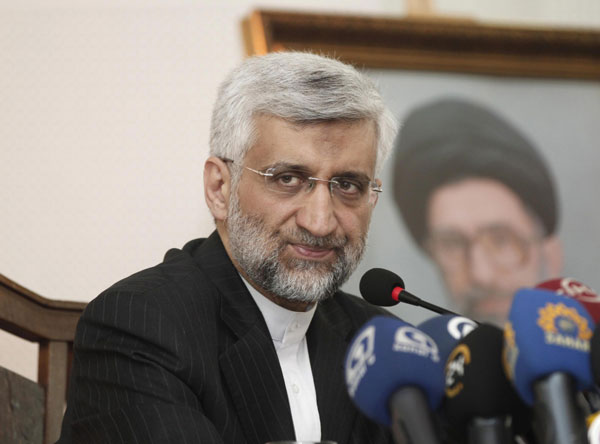Iran pres. candidates debate foreign policy
Updated: 2013-06-08 11:14
(Xinhua)
|
||||||||
TEHRAN - Iranian presidential candidates are divided over the country's foreign policy in their third and final televised live debate on Friday.
Saeed Jalili, a hardline principlist candidate, said that in international relations, the interests of the country will regulate the foreign policy of the Islamic republic.
"If our interests are at odds with (the demands) of some countries, we should defend our rights" by resistance, said Jalili, Iran's incumbent chief nuclear negotiator, who alluded to the conflicts between Iran and some Western countries over Iran's nuclear issue.
"One of our discussions is that we do not accept the hegemonic power in the world and are in challenge with it," Jalili said, adding that "We are in challenge with a system which intends to forcefully rule the world."
However, former Iranian Foreign Minister Ali-Akbar Velayati criticized Jalili's diplomacy over the country's nuclear issue in the past years, saying that it is "flawed".
"This is not diplomacy to sit face-to-face with the other side and to recite the same words" or "this is not diplomacy to read a statement before other countries," said Velayati.
He argued that the Islamic republic and the world powers could have reached an agreement if the Iranian negotiating team has responded positively to the proposals of the P5+1 group (five permanent members of the UN Security Council plus Germany) in the last round of nuclear talks in Almaty of Kazakhstan.
"The art of diplomacy is to preserve the country's nuclear right and, at the same time, we diminish sanctions," he noted.
Velayati said that before Iran's nuclear dossier was sent to the UN Security Council, he was invited to France at the invitation of then French President Nicolas Sarkozy to talk over the country's nuclear issue and they agreed that Iran should reduce the number of centrifuges but at the same time could keep nuclear enrichment activity.
However, Iran's Foreign Ministry under President Mahmoud Ahmadinejad's presidency told the French embassy that Velayati was not the government's representative to hold talks with the French president.
Therefore the negotiations to solve the country's nuclear issue were stopped and Iran's nuclear dossier was later submitted to the UN Security Council by the UN nuclear watchdog, which was followed by the successive sanctions and further pressures.

 Michelle lays roses at site along Berlin Wall
Michelle lays roses at site along Berlin Wall
 Historic space lecture in Tiangong-1 commences
Historic space lecture in Tiangong-1 commences
 'Sopranos' Star James Gandolfini dead at 51
'Sopranos' Star James Gandolfini dead at 51
 UN: Number of refugees hits 18-year high
UN: Number of refugees hits 18-year high
 Slide: Jet exercises from aircraft carrier
Slide: Jet exercises from aircraft carrier
 Talks establish fishery hotline
Talks establish fishery hotline
 Foreign buyers eye Chinese drones
Foreign buyers eye Chinese drones
 UN chief hails China's peacekeepers
UN chief hails China's peacekeepers
Most Viewed
Editor's Picks

|

|

|

|

|

|
Today's Top News
Shenzhou X astronaut gives lecture today
US told to reassess duties on Chinese paper
Chinese seek greater share of satellite market
Russia rejects Obama's nuke cut proposal
US immigration bill sees Senate breakthrough
Brazilian cities revoke fare hikes
Moody's warns on China's local govt debt
Air quality in major cities drops in May
US Weekly

|

|








